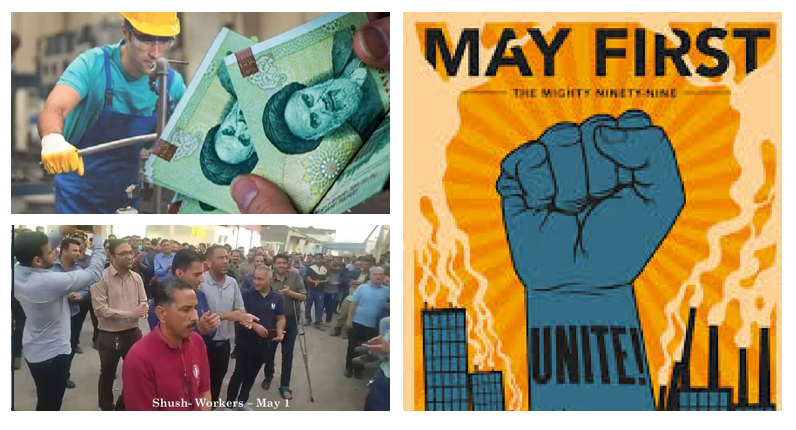
Iran is currently facing its most severe economic crisis, which is affecting people from all walks of life.
However, the situation for Iranian workers is particularly dire, as they face unsafe working conditions and a poor financial outlook. Many describe their plight as a form of “modern slavery” under the ruling theocracy.
Work accidents and fatalities are prevalent in many countries, but Iran, under the clerical regime, ranks among the highest in terms of work-related incidents. In 2022 alone, 1,900 workers lost their lives due to work accidents, with half of these being construction workers.
According to the state-run ILNA News Agency, Iran has at least two million construction workers, of which approximately 1.5 million are deprived of basic rights such as insurance or stable contracts. The Construction Workers Insurance Law, established in 1932, was meant to provide compensation for workers involved in construction activities in case of injuries, disabilities, or even fatalities. This law required the issuance of payment receipts as proof of insurance coverage.

Regulations for social security insurance of construction workers, as outlined in Article 5, state that a license will be granted upon submission of the insurance payment receipt, which should be deposited into the social security organization’s account.
The required payment for each square meter of infrastructure is equivalent to 4% of the minimum monthly wage. Therefore, the regime should either increase workers’ insurance payments or provide insurance to many uninsured workers. However, the regime’s parliament has delayed ratifying an amendment to address workers’ insurance concerns.
Surprisingly, instead of implementing the law, some members of the regime’s parliament have called for its abolition, claiming that increasing workers’ insurance premiums or extending coverage to disadvantaged workers would raise real estate prices and worsen the housing crisis. However, according to the state-run Sharq Daily, increasing workers’ insurance has minimal impact on property and building prices.

Construction costs per square meter remain relatively constant nationwide, while workers’ wages account for a smaller portion of the overall cost.
The construction industry, particularly mass construction, high-rise buildings, and advanced structures, is largely controlled by the Revolutionary Guards and the supreme leader. These influential groups hold immense power, leading to the delay and potential revocation of the Construction Workers Insurance Law, despite its recent passage.
It is concerning that 8% of Iran’s workforce is employed by construction companies, which are responsible for 50% of work-related accidents in the country. This oppression of workers demonstrates the significant challenges they face in the construction industry.
In conclusion, Iranian workers are enduring precarious working conditions and a lack of basic rights, amounting to a form of “modern slavery.” The delay in implementing proper insurance measures for construction workers highlights the influence of powerful entities within the industry. Urgent action is needed to address these issues and protect the rights and safety of Iranian workers.

